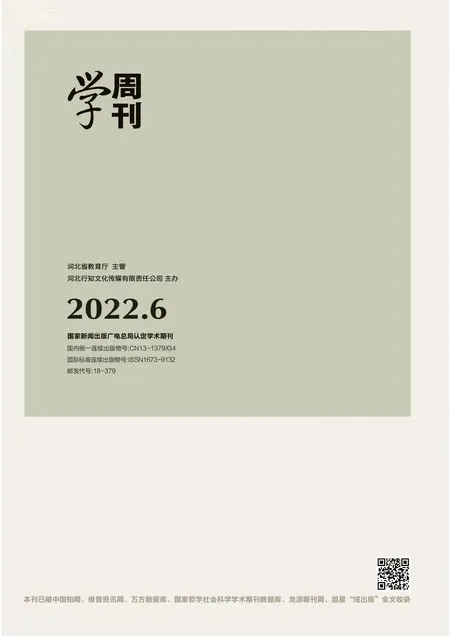An Exploration of Functional Equivalence Theory in the Translation of Movie Titles
2015-07-19
(东北电力大学外国语学院132012)
An Exploration of Functional Equivalence Theory in the Translation of Movie Titles
李志远
(东北电力大学外国语学院132012)
Exploringthefeaturesand translation of movie titles within the framework of Nida’s functional equivalence theory,this paper mainly aims to discuss the application and limitations of this theory and in the end proposes some methods in producing good translations of movie titles.
functional equivalence theory;movie titles;translation
I.Introduction
As the exchange among countries going further,a movie,is playing an increasingly important role in promoting a country’s culture and communication.These years,both the quantity and quality China’s imported foreign movies,especially English movies,are largely enhanced.Therefore,movie translation is becoming more emphasized.In the midst,translation of movie titles should not be neglected. In the process of the movie title translation,Nida’s functional equivalence theory can be employed.
II.An Overview of Functional Equivalence Theory
The American translation theorist,Eugene A.Nida,is an advocate of functional translation.In his book Language and Culture:Context in Translation,he defines the term“functional equivalence”as“the original receptors understood and appreciated the text and the way in which receptors of the translated text understand and appreciate the translated text.”From this definition,we can form a clear picture of the nature of translation which is to use the translated text to make the receptor understand and appreciate the original author’s meanings.That is to say,according to Nida,“receptors’responses”occupy the most significant part in judging the quality of the translated texts.Nida further explains that if“the reader in the receptor language understands and appreciates the translated text in essentially the same manner and to the same degree as the reader in the source language did,such a translation can be evaluated as a dynamic equivalent translation.”
III.The Principle of“the Closest E-quivalent”in Movie Title Translation
The translation of the title of the famous American romantic movie Sleepless in Seattle is a very good example of using this principle.In this movie the title not only serves as a clue which goes through the whole movie,but also invokes our deep thinking.It is just this“Sleepless in Seattle”that leads the female protagonist thoughts and activities as well as the development of the whole story.It is the magic of love that makes the people sleepless.Therefore,it is of crucial importance to the whole movie.Then,how can such impressions be achieved in the translated title?Translators of the movie directly as《西雅图不眠之夜》,which not only well expresses the original idea but also invokes our Chinese spectators’deep feelings as well.Such a translation can be called a closest equivalent translation.It makes the“original receptors understood and appreciated the text and the way in which receptors of the translated text understandandappreciatethetranslated text.”Besides,themovietitles,like,Schindler’s List,Man in Black,The Jurassic Park are translated as《辛德勒的名单》,《黑衣人》and《侏罗纪公园》respectively.All of these translated titles can be called“the closest equivalent”to the original ones.They are concise,informational,and attractive and so on,which are the major features of the original titles.
IV.The Principle of“the Natural E-quivalent”in Movie Title Translation
The principle of“the natural equivalent”requires that the translation should have no trace of awkwardness or strangeness in its grammatical and stylistic forms.Also take the above translation,Sleepless in Seattle,as an example.If this title is translated as《睡不着在西雅图》,we can say that it is“the closest equivalent”translationoftheoriginaltitle. However,when we see such a translation,we may point out immediately that this translation is not good because we Chinese people do not say this way and it seems very unnatural to us. In this case,“the natural equivalent”principle is not followed.Still there are some other translation versions of this movie,such as《西雅图未眠夜》,《西雅图不眠夜》etc.Yet we still consider the translation,《西雅图不眠之夜》as the best translation.The reason is that the character“之”is a very Chinese.By adding such a character,the title seems more suitable to the Chinese taste.Besides,movie is a kind of art form,by adding the character“之”,the translated title seems more artistic. Thus its commercial goal is easier to be achieved.
Take another example,if the movie The Wizard of Oz is translated as《奥兹国历险记》,Chinese spectators could be very puzzled because it does not suit to the Chinese way saying,in other words,it is foreign to the Chinese.However,if the translation is《绿野仙踪》,we may consider it Chinese because Chinese idioms are of four Characters.The translation is more in a way of Chinese.
V.Conclusion
From what we have mentioned above,we can see that in the translation of movie titles we should not only translate word by word mechanically but to translate based on a whole understanding of the movies themselves.Nida’s functional equivalence theory can be used as the theoretical framework in the translation of movie titles.However,in movie title translation not only one factor but some other factors,such as the aesthetic and commercial factors,spectator factor,and movie functions should be considered.Only in this way,can the“real equivalence”be achieved.
[1]Nida,Eugene A.Language and Culture:Contexts in Translating.Shanghai:Shanghai Foreign Language Education Press,2004: 86,180.
[2]Ma,Huijuan.AStudyonNida’s Translation Theory.Beijing:Foreign Language Teaching and Research Press,2007.
[3]于婧.电影名称的翻译浅说.文学教育,2008.
(责编 张景贤)
李志远(1985—),男,吉林省吉林市人,硕士,讲师,研究方向:应用语言学、翻译与跨文化研究。
